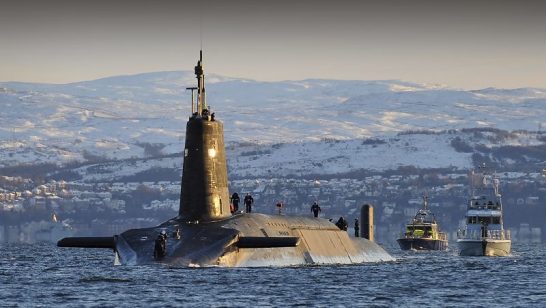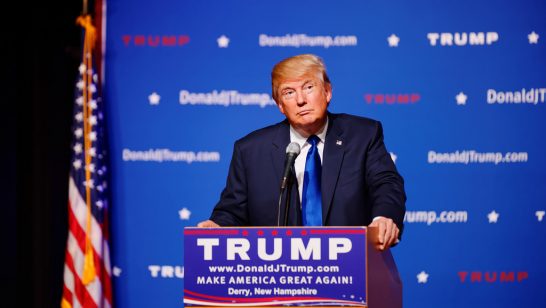
The twin decisions last month about Iran’s nuclear programme – the certification by the International Atomic Energy Authority (IAEA) that Iran had fulfilled all of its initial obligations under its nuclear roll-back agreement with the P5+1 and the lifting of nuclear-related sanctions – were momentous enough in themselves. But did they mark a genuine turning-point in Iran’s relations with the wider world, or simply some temporary relief from a serious threat to international peace and security which the world could do without? Plenty of vociferous critics of the agreement remain – in Israel, in Saudi Arabia and in the U.S. Congress. But the overwhelming response has been positive, and not just on the merits of the agreement itself, but also because it was a success for patient, confidential diplomacy, and because it was a boost to the nuclear non-proliferation regime, which has taken plenty of knocks in recent years but which remains an essential building block of global security.
Much credit has rightly gone to the U.S. duo of President Obama and Secretary Kerry and to the Iranian duo of President Rouhani and Minister Zarif. Less notice has been given to the Europeans who pioneered the negotiating process and who sustained it through many years of discouragement. It is the Europeans who have as big a stake as anyone in the follow-up to the agreement; and yet it is far from clear that they have given much thought to their future role, other than to set off on a predictable, if unseemly, rush for Iranian contracts.
Is the agreement sustainable? There is no such thing as certainty in these matters. But I suspect it is a good deal more robust than its critics would have us believe. The disincentives for Iran to depart from a strict application of the agreement’s provisions, particularly during the U.S. electoral cycle and following the arrival of a new president in the White House, would seem to be pretty compelling. Whoever becomes president will no doubt say some tough things during the campaign; but will he or she judge it in the US interest to renege on the agreement, risk international isolation and possibly ignite a further conflict in a region which has far too many already? The European interest would seem to be to make it clear to the Iranians that failure to implement the agreement rigorously would not be tolerated and would inevitably lead to a re-imposition of sanctions, and to the Americans that we would not support or be a party to any unravelling of the agreement.
Does the agreement herald some wider, more fundamental shift in power relationships in the region, some kind of “reversal of alliances”, as more excitable commentators have suggested, with the U.S. working more closely with Iran across the board and with Saudi Arabia and Israel being marginalised? I very much doubt it. There would seem to be no appetite for that in either Tehran or Washington. In Tehran the tensions between Khamenei and the Revolutionary Guards on the one hand and the negotiators of the nuclear agreement on the other are likely to preclude that. In Washington the next president is quite likely to give priority to repairing and strengthening relations with Saudi Arabia and Israel. I also do not believe it would make sense for the Europeans to nurture such fantasies; there are enough destabilising factors at work in the Middle East already without adding to their number.
What the Europeans should be doing, I would suggest, is to engage with the Iranians in a dialogue on all the issues that trouble their region, treating Iran as a serious interlocutor and player, and not as a pre-ordained adversary. But, if Iran is, over time, to play the regional role to which it aspires, it will surely need to be willing to contribute to the security of the region, rather than undermining it as it has often done in the past. The Geneva negotiations on the future of Syria and the UN-organised negotiations to end the civil war in Yemen are cases where they could demonstrate that willingness. It must surely be clearer now than it has been hitherto that the unchecked continuation of the civil wars in Syria, Iraq, Yemen, Libya and Afghanistan will play into the hands of IS and Al Qaeda, who are the enemies of all the states in that region – Iran amongst them – irrespective of whether their populations are predominantly Sunni or Shi’a.
It is easy, and tempting, in the present maelstrom of instability, to lose sight of any medium or long term objectives. Far too often the European Union seems not even to think about them. One such objective could be to move towards an overall regional framework for security and cooperation, perhaps modelled loosely on the Helsinki Final Act and the Paris Charter which led to the establishment of the Organisation for Security and Cooperation in Europe. This could provide for non-intervention by states in the internal affairs of others, for the respect of human rights and the rights of religious and ethnic minorities and for a substantially increased degree of economic cooperation. Should such a framework begin to emerge it would contribute greatly also to ensuring that, as the end of the fifteen-year span of the nuclear agreement approaches, we do not slip back towards confrontation and the risk of conflict. Wishful thinking? Perhaps. But it is sometimes better to have a destination in mind than just to focus on the travel.
The opinions articulated above represent the views of the author(s), and do not necessarily reflect the position of the European Leadership Network or any of its members. The ELN’s aim is to encourage debates that will help develop Europe’s capacity to address the pressing foreign, defence, and security policy challenges of our time.



